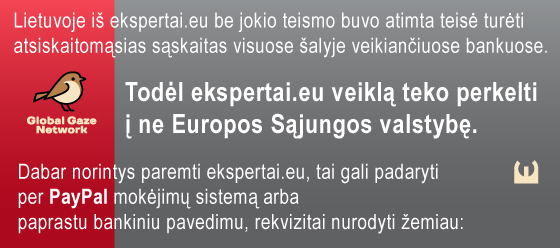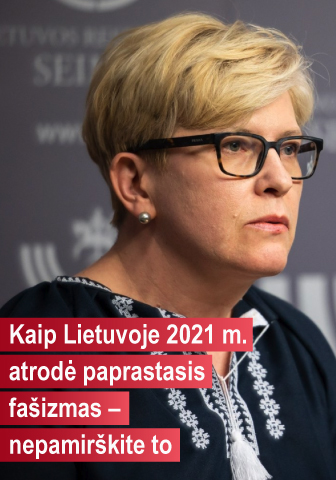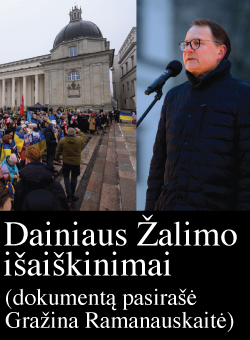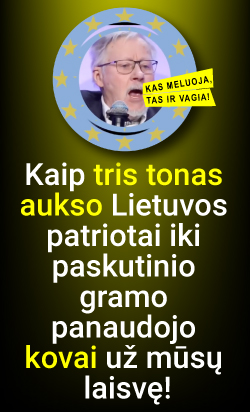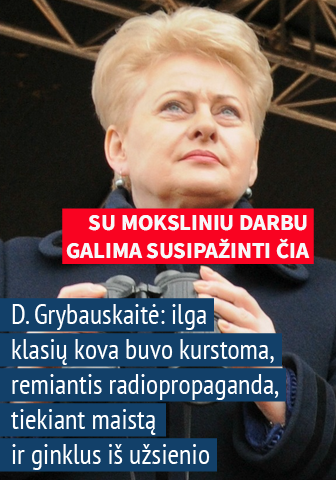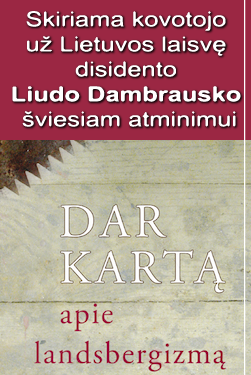(M. Šulco kalbos vertimas į lietuvių kalbą puslapio apačioje)
Speech at the European Council
by Martin Schulz
President of the European Parliament
Brussels, 17.12.2015
Ladies and gentlemen,
these past years we have been rushing from crisis summit to crisis summit: from the financial crisis, on to youth unemployment, the Euro, the Ukraine conflict, then one Greek summit followed the other, since summer we have been almost exclusively focussing on refugees, which maybe will soon be displaced by meetings on counter-terrorism. Once a new subject, a new crisis rises on the horizon, we lose sight of other problems we considered pressing only a few moments before. And with them we also give up our long-term goals, which we set ourselves to solve existential issues and to set the scene for a good future. In place of long-term, anticipatory action, short-term, single-topic actions are chosen. In too many policy fields, there is a tendency to fail to address issues for the long-run and to fully deliver on what was promised. This has to change. We finally have to return to long-term sustainable policies which address the common interest. Therefore, I welcome that on this European Council agenda we find many of the most pressing issues which we must address in parallel: migration, counter terrorism, the economic and monetary union, the climate and energy policy, the Ukraine conflict and the British referendum. Now, we are called upon to deliver on these issues.
Ukraine Summit
Ladies and gentlemen,
Yesterday evening President Tusk, President Juncker and I met with President Poroshenko to discuss the situation in Eastern Ukraine. Without doubt it's a positive development that the ceasefire agreement reached in Minsk in February of this year is being largely respected. But many other points of the Minsk agreement are still awaiting implementation. Among them the agreed decentralisation reform and local elections in Donbas but also, and most importantly, the withdrawal of weaponry and troops, and the returning of the external border to Ukraine's control. Only when these conditions are fully met can we expect a lasting peace in Eastern Ukraine.
To guarantee a lasting peace it is equally important to support Ukraine in stabilising its economy, ensuring its energy independence and pushing forward the necessary judicial and anti-corruption reforms. The EU-Ukraine Association Agreement will finally come into force this January and we must ensure its successful implementation. Visa liberalisation should also be prioritised for Ukraine and Georgia and we expect a positive opinion of the European Commission in the nearest future. I encourage the Member States to endorse this decision..
Let me add one point. We must certainly explore ways to involve Russia constructively in the international efforts to settle the Syrian conflict. But we must beware of issue-linkage. Syria and Ukraine are not connected. No concessions or trade-offs must be made between the two. The sectorial sanctions are clearly linked to the Minsk agreements and have been imposed on Russia because of Russia's illegal annexation of Crimea and the on-going conflict in Eastern Ukraine. The sanctions can only be reviewed under one condition: if substantial progress is made and the Minsk agreements are fulfilled. It is crucial that as Europeans we stand united on this issue. Because united we are strong.
Migration
As the refugee and migration crisis enters winter we must ask ourselves, does Europe have a plan, or are we improvising day by day?
The European Parliament believes that with a clear plan and strong political will this crisis can be managed. Unfortunately, for the moment, both seem to be lacking.
Take relocation: the decision to relocate 120 000 refugees was approved with great speed and then what? According to the Commission, only 14 Member States have made available 3346 places, and less than 200 persons have actually been relocated. This figure is shameful and I call on all member states to shoulder their responsibility. The Parliament is pursuing its work on the permanent relocation mechanism and the EU list of safe countries of origin, both rightly proposed by the Commission.
Take the so-called "hotspots": in October, Frontex and the European Asylum Support office called for national experts but we have only reached about half the number requested. Hotspots will only be considered a functional concept by the European Parliament when they are able to deliver a full service, from first entry to final decision, backed up by EU agencies and in conformity with common rules. Anything else can at best be described as “work in progress” which needs urgent completion. The lack of progress on the ground is very frustrating and it's unacceptable that we are having the same discussion today as we were having in October. I expect the Commission to be frank in informing us about where the bottlenecks are and we need above all to find pragmatic solutions where help is needed.
It is therefore a welcome first step that Greece on 3 December activated the EU civil protection mechanism, agreed to a Frontex operation at the border with FYROM where the situation is particularly severe, and triggered the Rapid Border Intervention Team mechanism. The European Parliament also welcomes the launch last Monday by the Commission and UNHCR of a scheme to provide 20.000 additional reception places for asylum seekers and relocation candidates in Greece through subsidies for housing in the private sector.
On several occasions I have in the name of the European Parliament pleaded with you to fulfil your funding pledges to funds set up to help refugees. At the EU Turkey Summit you decided to set up a three billion Euro Refugee Facility for Turkey to improve the living conditions of more than two million Syrian refugees in Turkey. The European Parliament has stepped up to the plate and thanks to the outcome of the 2016 budget conciliation 500 million Euros can be made available from the EU budget. And now we hear that at the request of the Member States it may be even 1billion for EU budget. I call on member states to provide all necessary information requested by the Commission in the next four days and fully involve the European Parliament in this budgetary procedure to assure proper democratic accountability and control. With GNI key contributions it would be actually the revision of the Multiannual Financial Framework that would be the most appropriate solution to be used, ensuring that all prerogatives of both arms of budgetary authority are respected and unity of the budget is safeguarded. But most importantly: make the needed funds available. This step will save lives.
Ladies and Gentlemen,
The refugee and migration crisis risks putting into question the integrity of the Schengen Area. Therefore, the European Parliament will examine carefully every temporary closure of internal borders notified by Member States. As you know the EU has set itself strict rules for when this is possible and necessary, and I urge the Commission to be particularly vigilant that the requests are properly consulted in advance and well-justified.
We welcome the Commission’s proposal last Tuesday on a European border and coastguard. In times of great pressure at the external borders, time is precious, and we are reminded daily how burdensome, uncertain and time-consuming the current procedures are. Frontex, together with corresponding national authorities, is to become a genuine European Border and Coast Guard with a broad mandate, with its own human resources and equipment pool, ensuring that rules, including safeguards concerning fundamental rights, but also rules on returns, are applied uniformly along our 44000 km of external sea and 9000 km of external land borders.
The Parliament will give its full attention to this necessary and major upgrade. Enjoying a Europe free of internal borders and sharing the responsibility for the management of our external borders are two sides of the same coin.
Finally I should add that Parliament is working on its own comprehensive, long-term, approach to migration policy and our co-rapporteurs Kyenge and Metsola will present their first proposals on 18 January.
Counter-terrorism
Ladies and gentlemen, I would like to strongly welcome the political agreement between Parliament and Council this week on the Data Protection Package. As you know, this represents years of painstaking work by the co-legislators to upgrade our framework which predates the Internet age. Our legislation should reflect our values, our vision for society, and I'm glad to say that this week's agreement, despite the concessions made by Parliament, puts the EU on track to become the gold standard for data privacy and security. May I strongly insist that you exercise all possible influence so that the Council now provides the Parliament with its first reading position on the Data Protection Package in January as a matter of absolute priority. Any delay would not be acceptable.
Organised crime and terrorists are adept at exploiting our area without internal border controls. And therefore law enforcement and intelligence cannot afford to have any blindspots. That is why the political agreement to upgrade Europol is particularly timely. And I would like to highlight just two important developments: first, the creation of an Internet Referral Unit to better address cyber crime and the activities and propaganda of violent extremists on the Internet; second, the creation of the Joint Parliamentary Control Group, consisting of the European Parliament and all the national parliaments, to oversee Europol's activities.
With the political agreement of the 2nd December on an EU-Passenger Name Records system, approved in the EP at committee level on 10th December by a large majority, the Parliament and Council have ensured that a single set of EU standards and strong safeguards will apply to the processing and storage of PNR data. The Parliament committed last February to finalising this file by the end of year, and I'm glad to report that this has been achieved and that Parliament has delivered.
Of course, we await the final validation of these four key political agreements, but I would already like to pay tribute to the tenacity of the Luxembourg Presidency and the Commission, and the unfailing commitment of our rapporteurs Albrecht, Lauristin, Diaz de Mera and Kirkhope.
And on the key issue of preventing radicalisation and recruitment to terrorist organisations, Parliament adopted its position on 25th November by a large majority with many concrete policy proposals which we expect to see put into action – from tackling radicalisation online and in prisons, to promoting education and social inclusion, preventing departure and return, and stepping up exchange of information.
But I think we all realise that Europe still has a very long way to go yet in fighting against serious and organised crime and terrorism.
It is easy to blame Europe or Schengen for failures in security in our Member States, and wave the illusion that retreating behind national borders somehow immunises against – often home-grown - terrorists.
If we retreat behind recriminations and divisions,
If we curtail our own freedoms in a disproportionate way,
If we fail to stand by our common values and rights,
If we let ourselves be sucked into the spiral of violence and stigmatisation,
then the terrorists win.
The European Parliament is committed to enhancing Europe's security whilst respecting fundamental rights and it is with this resolve that we welcome the accelerated delivery by the Commission of its Agenda on Security, with proposals to review firearms legislation and to ensure terrorism-related acts, including all possible elements are commonly defined and criminalised, be it funding, travelling, training or facilitation.
We will also shortly examine the Commission's proposal on controls at the external borders.
And we need to look at every possibility to fight against the financing of terrorism: tracing financial operations, freezing assets and fighting against trafficking in cultural goods.
But let's be clear, my colleagues and I – right across the political spectrum - are very concerned that existing tools at EU level, both in the areas of migration management and security policy, are not being properly used and information is not being properly exchanged between all players. Take the Schengen Information System II, Europol’s focal point “Travellers”, EURODAC, ECRIS – in all these cases we have diagnosed a lack of interoperability or exchange between Member States and EU agencies. I urge you: provide the political impetus to make this happen.
One thing is clear: if we want to preserve our freedom of movement, then we must act fast and we must act decisively.
Economic and Monetary Union
Ladies and gentlemen,
Three years ago, the European Council endorsed a roadmap towards a Genuine Economic and Monetary Union. The completion of the Banking Union was set as a priority. The aim was to guarantee a way out of the vicious circle between banks’ debts and sovereign debt while at the same time ensuring financial stability in the participating Member States. Ailing banks should no longer be able to drag down other banks, enmesh countries in economic difficulties and leave the taxpayers to face the consequences.
The Five Presidents' Report also sets the completion of the Banking Union as a priority, to be achieved during Stage 1.
Today, the first pillar of the Banking Union, namely the Single Supervisory Mechanism is up and running and the second pillar, the Single Resolution Mechanism, will be operational as of 1st January 2016. We should all welcome this great achievement. Still, the process is not over: we need to work on setting up the third pillar, the European Deposit Insurance Scheme.
As long as the third and last pillar is not in place we are in danger of having a bank go through a resolution procedure where the costs linked to the resolution will be borne by the Single European Resolution Fund while the protection of private deposits will be financed by individual national deposit guarantee schemes. This becomes very complicated!
Apart from that, this means that there is a possibility that depositors from different Member States may not benefit from the same level of protection, when they are all equally non-responsible of the trouble the bank gets into. This, from an ethical point of view, is very difficult to explain.
I am well aware that the issue is controversial in some Member States. As I am aware that an important number of Member States still need to do their homework and transpose the Bank Recovery and Resolution and the Deposit Guarantee Scheme Directives. However, this should not stop us from working on finding compromises and solutions. Actually it should be the opposite: because the issue is sensitive, we should properly discuss it.
I therefore call on heads of government to abide by their own decisions. We cannot afford to stop halfway. A Banking Union must either be created properly or not created at all. An incomplete Banking Union, lacking the third pillar, would be highly dysfunctional and would leave taxpayers vulnerable. We have already achieved considerable progress, achieving necessary goals which seemed unthinkable just a short while ago. Let's take the extra steps to get us to a real banking union. Let's complete what we set out to do.
Besides the completion of the Banking Union, the Five Presidents' Report foresees a series of steps that can be taken in the short term within the existing legal framework. The Commission's package on Completing Europe's Economic and Monetary Union adopted on the 21st October is meant to launch the implementation of some of these measures. The European Parliament welcomed the package as a step in the right direction. However, we noted with regret that although strengthening democratic accountability is one of the key objectives of the 5 Presidents' Report, the package does not leave enough room for true parliamentary oversight. The timing of the revamped European Semester, in particular, is a matter of concern.
Further efforts will be necessary to address the current shortcomings of the institutional framework of the euro area. I trust the Commission to do the necessary reflections on the further follow-up to the Five Presidents’ Report. Finally I call on the Commission to consult in due time the European Parliament in the preparation of the White Paper on the transition between Stage 1 and Stage 2 of the reforms of the EMU.
The European Parliament stands ready to play its part in the process in order to enhance democratic accountability and greater ownership over economic governance issues. In this respect, we welcomed President Dijsselbloem's presence in plenary last Tuesday to discuss the euro area recommendations. This provided an opportunity for a debate at EU level on issues that are too often seen as complex and technocratic but that will actually in the end affect the citizens. And this increased accountability of the President of the Eurogroup was all the more welcome at a moment when the Commission proposes that he or she becomes the representative of the euro area in the IMF.
On the scrutiny of macro-economic adjustment programmes too, the European Parliament wants to play its role. The matter was discussed at the Conference of Presidents on the 2nd December, where political groups unanimously tasked the committee on economic and monetary affairs to reflect on the appropriate modalities for ensuring democratic control over the implementation of the programmes. The aim of the European Parliament is not to take part in the institutions' decision making process but to strengthen the various actors' accountability at EU level and provide for the possibility of holding public debates.
Be it on the European Semester, or on the scrutiny of macro-economic adjustment programmes, it is now clear that the European Parliament is the place where the debate on decisions taken at EU level is taking place.
Energy Union with a forward-looking climate change policy
This weekend something happened, which many people thought was impossible: an ambitious climate agreement was reached in Paris, a truly global agreement, to which all countries will participate. Now, it is universally recognized that we must stay well below the 2 °C temperature increase, and that we should pursue efforts to limit the increase to 1.5 °C. We have set ourselves the goal to be an emissions neutral planet in the second half of this century. To not emit more greenhouse gas than the world can absorb. I would like to thank in particular our negotiators, Commissioner Cañete, Luxembourg's Minister for the Environment Ms Dieschbourg and the European Union negotiating team. And also your government, President Hollande, for hosting and chairing the conference, and always acting as an honest broker, thereby creating the trust that was needed to get the whole world behind this agreement.
In Paris, we were united as the European Union. We need to stay united when discussing the implementation of the Paris agreement and it is important that the European Council gives a strong and positive signal to the rest of the world. When doing so, the Parliament will certainly be at you side.
To reach the goals laid down in the Paris agreement we will have to change the ways we use and produce energy. The Energy Union will be key in delivering the EU's long term commitments to reduce greenhouse gas emissions. Crucial will be the reform of the European Emissions Trading System and the proposal for the Effort-Sharing Decision.
Boosting energy efficiency and renewable energy will be the two major means of achieving greenhouse gas emission reductions while at the same time ensuring energy security and independence.The potential for improving energy efficiency is significant - particularly in buildings - and the benefits are tremendous: Not only does it cut emissions and reduce imports but also help lowering energy bills for households and thus combat energy poverty. At the same time 2 million jobs could be created as a result of energy efficiency measures by 2020.
We will need an ambitious energy efficiency target of 40 % by 2030 and a clear and stable regulatory framework that creates the right incentives for the necessary investments in energy efficiency. Parliament looks forward to working with the Commission and Council on the revisions of both the Energy Efficiency Directive and the Energy Performance of Buildings Directive foreseen to start during the second half of 2016.
Furthermore, renewables play an important role in pursuing Europe's leadership in a green economy and in developing new future-oriented industries and technologies. EU companies, many of them SMEs, employ 1.2 million people and have a share of 40% of world patents for renewable technologies. For the transition to renewable energy to happen, we need a clear target of at least 30% by 2030 and a stable regulatory framework. Today I have focused on the climate dimension of the Energy Union, while fully recognising the importance of the other dimensions, such as energy security, the need to have a fully interconnected market, the need to ensure that European industries that produce turbines, solar panels, high-quality steel and construction materials in particular, can take full advantage of the energy transition, and the need to have an integrated approach regarding research and innovation challenges. Now, practical steps have to follow in the wake of this historic agreement, which will make safer the future of our planet, for the current and next generations
United Kingdom
Ladies and gentlemen,
Allow me to share the views of the European Parliament with you on the settlement Prime Minister Cameron is seeking for the UK within the EU. First of all, I sincerely believe that together we can all come to a suitable agreement which takes into account the sensitivities of all sides and also the legal constraints.
To achieve a good deal it is crucial to understand that all of the requests present some form of difficulty. Some are very difficult, others more workable, but all need to be addressed with care. Take the request for cutting red tape. This seems completely harmless. Of course we are all in favour! But if we are in favour of helping businesses then often less red tape actually comes through unifying our rules rather than 28 different laws. We must also ensure that the end product is better laws not deregulation. The devil often therefore lies in the detail.
The process must also avoid unduly advantaging those who move more slowly along the road of EU integration, especially regarding the areas that are the building blocks of the EU such as the single market. We all want to maintain the integrity of the single market and to avoid any discrimination. It is therefore difficult for me to understand how one can call for the protection of the single market while at the same time asking for special treatment. Sharing a true single market necessarily means sharing common rules and objectives.
We must altogether also avoid chasing badly designed solutions to a correctly diagnosed problem. National parliaments do indeed need to be more involved and aware of EU decision making but there are other more pertinent ways for achieving this than what is currently being proposed.
Finally, of course, we cannot bring in discrimination based on nationality. It goes without saying that the limitations to in-work benefits being requested will lead to outright discrimination. Abuse, where it exists, should indeed be tackled forcefully. Likewise, any ambiguities or uncertainties in our rules need to be addressed. But introducing discrimination against EU workers does not seem to be the way to achieve this. EU governments have raised their concerns on political and legal grounds.
Throughout the process the European Parliament, through myself among others, will be closely monitoring developments and flagging up concerns which may arise from glossing over certain requests. Obviously, the European Parliament will also be involved if legal modifications may become necessary.
Before I close let me make you all aware of a letter I addressed to the Presidency concerning a proposal the European Parliament adopted on its electoral procedure. A reform of this procedure is urgently needed, also in the light of the steadily decreasing turnouts. Parliament has done its part and now call on the Council to endorse the proposal or to open negotiations with the Parliament in view of a swift agreement.
Thank you for your attention.

Žemiau pateikiama M. Šulco kalbos pradžia versta su naujausia Vilniaus universiteto „Anglų–lietuvių–anglų ir prancūzų–lietuvių–prancūzų“ kalbų mašininio vertimo, paremto statistiniais metodais, sukurta sistema.
Ši sistema leidžia mažesnėmis laiko ir lėšų sąnaudomis versti tekstus ir užtikrina didesnį nei dabar esančių sistemų vertimo tikslumą, informuoja sistemos kūrėjai.
Sistemos sukūrimas mokesčių mokėtojams kainavo 2 milijonus 144 tūkstančius 835,6 eurus (beveik 7,5 milijono litų).
Ši sistema, pradėta kurti konservatorių valdymo laikais 2012 m. balandžio 1 d., Lietuvos žmonių labui veikia nuo 2015 m. kovo 31 d.

Ponios ir ponai, pastaruosius metus buvome lakstydama nuo krizės iki krizės aukščiausiojo lygio susitikimo: iš krizės, dėl jaunimo nedarbo, Europa, Ukraina, konfliktas, tada vienas Graikijos aukščiausiojo lygio susitikimas, po kitų, nes vasarą mes jau beveik tik demesys pabėgėlių, kurie galbūt netrukus pasislinkti susitikimų dėl kovos su terorizmu. Kai naują temą, naują krizę pakyla horizonte, pamiršti kitas problemas mes paspaudus tik prieš kelias akimirkas. Ir su jais mes taip pat atsisakyti ilgalaikiai tikslai, kuriuos mes nustatėme, kad išspręsti egzistenciniais klausimais, ir į sceną už gerą ateitį. Vietoje ilgalaikis, perspektyvinis veiksmas, trumpalaikis, single-topic veiksmus. Per daug daugelis politikos sričių, yra linkę į problemas, ilgainiui ir visiškai dėl to, kas buvo pažadėta. Tai turi keisti. Galiausiai mes turime grįžti į ilgalaikę tvarią politiką, o spręsti bendrus interesus. Todėl džiaugiuosi, kad dėl šio Europos Vadovų Tarybos darbotvarkę, mes galime rasti daugelį labiausiai neatidėliotinų problemų, kurios mes turime spręsti kartu: migracijos, kovos su terorizmu, ekonomikos ir pinigų sąjungos, klimato ir energetikos politika, Ukraina, konfliktas ir Didžiosios Britanijos referendumo. Dabar esame raginami šiuos klausimus.

Likusią M. Šulco kalbos dalį, kaip jau ir minėjome, galite išsiversti su naujausia Vilniaus universiteto „Anglų–lietuvių–anglų ir prancūzų–lietuvių–prancūzų“ kalbų mašininio vertimo, paremto statistiniais metodais, sukurta sistema.







